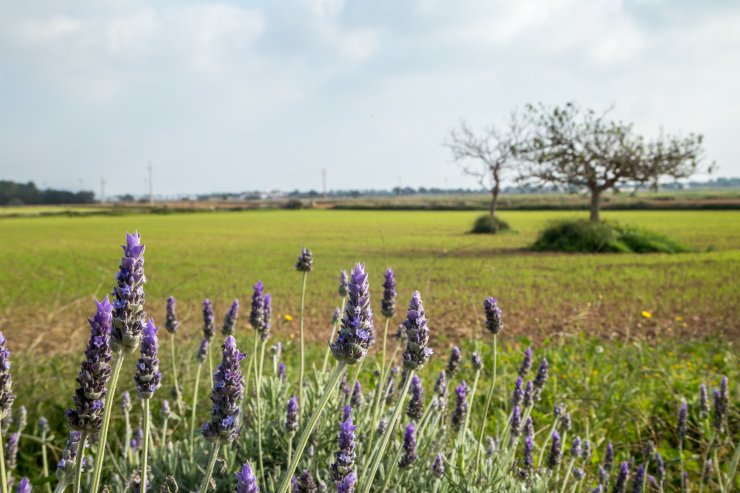Where are you now, reading this article? Are you commuting? Having a break from house chores? In an online meeting, mic on mute? Do you feel relaxed or distracted? Is your body tense or at ease? Can you hear the sounds around you? Do you notice how your thoughts arise? Are you mindful?
Mindfulness has become such a popular word that you can find it everywhere, from schools, hospitals, businesses, and retreat centres to glossy magazines. Does mindfulness involve ‘emptying' the mind? Does it include taking naps? Do you go into trance when you're being mindful? There seems to be quite a lot of confusion around the concept of mindfulness. So, what does it mean, and where does it come from?
The present moment awareness
The most popular definition of mindfulness comes from Jon Kabat-Zinn (2003), who wrote: ‘mindfulness is the awareness that arises through paying attention, on purpose, in the present moment, and nonjudgmentally, to the unfolding of experience, moment by moment'.
The concept of mindfulness, however, comes from the Buddhist tradition, a translation of the word satifrom Pali, the language of ancient India, meaning to focus on the present moment.
The first person to have used the term mindfulness in the West was T. W. Rhys Davids, a Buddhist scholar, in 1910, to translate the word sati. If Davids was the 'father' of mindfulness in the western world, then Jon Kabat-Zinn was its 'godfather'.
In 1979, after conducting his ground-breaking research on chronically ill patients not responding well to traditional treatments, Kabat-Zinn created a Mindfulness-Based Stress Reduction programme, that nowadays forms part of the mainstream of health care, scientific study, and public policy.
What is symbolic, what is real?
The great thing is that mindfulness is the inherent human quality to be aware in the present moment. We all know - or at least once knew - how to be fully present in the moment. Think of newborn babies - there is no distraction from the now in their world. There is no judgment about what is. The complications start with the expansion of our mind's capacities - abstract thinking, planning, remembering, conceptualization, etc.
Don't get me wrong, a human's mind is nature's miracle, it enables us to create, connect and expand, and I'm in awe of its potential and beauty. However, sometimes the world of symbols - norms, goals, values, beliefs - gets confused with the reality of experience, which consequently can feed our anxieties, stress and negative thinking, affecting our mental and physical health and general wellbeing.
Think about yourself right now, in this moment. Are you aware of where you are? The space around you? The temperature in the room? The sensations in your body? The emotions you're feeling? Do you allow the emotions and thoughts to occur and pass? Are you planning what to do next? Are you ashamed of any feelings - in this moment? Do you want any of the sensations to stay longer, do you get attached? Are you aware of your breath? Do you scold yourself for not breathing deep enough? Or for not sitting straight enough? Do you notice this judgment towards yourself?
Born mindful
Since mindfulness is a natural state, an innate quality of a human being, we cannot really practice it. Still, we can include some techniques - like meditation, body scan, guided visualization and other exercises - that lead to greater ability to connect with that state. Even though we are “born mindful”, staying this way, and practising mindfulness-based exercises, can be challenging. As the effects can be better felt over time, we need to be consistent and disciplined.
To many, the prospect of being present with one's thoughts is terrifying - a 2015 study by Timothy Wilson revealed that many people would rather apply electroshocks to themselves than be alone with their thoughts! Falling asleep, discomfort, struggles with painful thoughts or emotions, becoming bored and distracted - these are quite common experiences for beginners.
Science behind it
Mindfulness is not just a hip New Age word and mindfulness-based interventions are widely spreading not only in the field of psychiatry but also in the corporate world and every-day wellbeing practices. Various research demonstrates that increasing intentional attention, openness and curiosity aids developing a different relationship with one's thoughts. We are able to step back or disengage from initial thoughts by creating “awareness of being aware”, we become more creative and flexible with responses to distressing events and beliefs, and we liberate ourselves from repetitive negative thinking. We can develop resilience in the face of stress.
In this sense, all programs, classes and sessions that Transformation Station offers involve mindfulness-based practices, inviting you to pay attention to your here-and-now experience with an open mind, kindness towards yourself and non-judgment. Practising in a group environment, even if via the internet, with an experienced instructor, is invaluable, especially for beginners.
Mindfulness meditation
If you want to include mindfulness meditation to your daily life, here are some basic guidelines to follow. Adapt them to your circumstances, and approach with an open mind and heart - you don't have to get anywhere, you don't need to meet any expectations. Mindfulness is about loving yourself unconditionally in the present moment.
Find a comfortable space. Sit on a yoga mat and cushion or chair. Keep your back straight but not stiff. Relax your head and shoulders, with your hands on your lap or your knees.
Focus on your breathing. With your eyes closed, take a deep breath. Feel how your chest rises when you inhale and how it falls when exhaling. Feel how your belly expands and contracts. Notice the cool air entering your nostrils and its warmth as it exits. Follow your natural breath; you don't need to control it.
Be gentle. You notice thoughts arising, trying to pull your attention towards them. It's ok to have these thoughts. Don't judge them. Don't judge yourself. Gently bring back your attention to your breath.
Create a routine. You will benefit the most from daily practice, at least 10 minutes a day; we recommend 20 minutes twice a day.
To conclude, I feel the need to clarify one thing. Even though we adopted the word mindfulness to grasp the state of non-judgmental awareness in the present moment, it's worth remembering that it's not only the mind that is involved here. When genuinely present and aware, we connect to the world with our open hearts. As Kabat-Zinn puts it: “We are simply allowing anything and everything that we experience from moment to moment to be here, because it already is”. Make mindfulness your way of being. Start now.
References:
Kabat-Zinn, J. (2003). 'Mindfulness-based interventions in context: Past, present, and future.' Clinical Psychology: Science and Practice, 10(2), 144-156. doi: 10.1093/clipsy.bpg016
Wilson, Timothy D. (and others) (2015). 'Just think: The challenges of the disengaged mind.' HHS Public Access
Daga Cybruch is an Ibiza based counsellor and writer, collaborating with various projects focused on personal development and mental and emotional wellbeing. You can find out more about Daga at IbizaTherapist.com.









